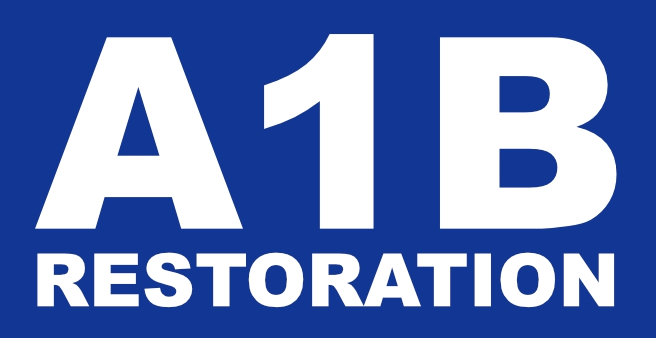The Impact of Water Damage on Property Value
Water damage is one of the most destructive issues a property owner can face. It not only affects the structural integrity of the building but also significantly impacts the property’s value. This blog post will delve into the various ways water damage can depreciate property value, backed by statistics, real-world examples, and actionable tips for mitigation.
Understanding Water Damage
- residential water damage restoration Grapevine Texas
- restoration company water damage Grapevine Texas
- restoration of water damage Grapevine Texas
- restoration services water damage Grapevine Texas
- water damage and restoration companies Grapevine Texas
- water damage and restoration Grapevine Texas
- water damage clean up near me Grapevine Texas
- water damage cleanup companies Grapevine Texas
- water damage companies near me Grapevine Texas
- water damage company near me Grapevine Texas
- water damage restoration cost Grapevine Texas
- water damage restoration service Grapevine Texas
Water damage refers to various types of harm caused by water intruding where it shouldn’t. This can be due to a variety of reasons including floods, leaks, burst pipes, or even high humidity levels. Regardless of the source, the effects can be devastating both structurally and financially.
Types of Water Damage
Halthom City | Irving | Keller | Lake Dallas | Lake Highlands Dallas | Lakewood Dallas | Lavon | Lewisville | Little Elm | Lucas | McKinney | Mesquite | Murphy | North Richland Hills | Parker | Plano | Preston Hollow Dallas | Richardson | Roanoke | Rockwall | Rowlett | Royse City | Sachse | Southlake | Sunnyvale | The
Water damage can be classified into three primary categories:
- Clean Water Damage: This type of damage is caused by water from a clean source such as a broken water supply line or leaking faucet. Though the water is clean, prompt action is still necessary to prevent mold growth.
- Grey Water Damage: This involves water that is slightly contaminated, such as water from a washing machine, dishwasher, or toilet overflow (without feces).
- Black Water Damage: This is the most severe type of water damage, involving highly contaminated water from sources such as sewage backups or floodwaters. Immediate professional intervention is crucial.
Statistics on Water Damage
Water damage is surprisingly common. According to the Insurance Information Institute, about one in 50 insured homes has a property damage claim caused by water damage or freezing each year. Additionally, water damage claims are the second most frequent insurance claims, accounting for around 20% of all claims.
The Financial Impact of Water Damage
Water damage can drastically reduce the value of your property. Here are some of the financial impacts:
Repair Costs
The immediate cost of repairing water damage can be substantial. According to HomeAdvisor, the average cost to repair water damage is around $2,700, but it can range from $1,200 to $5,500 depending on the severity and location of the damage.
Depreciation of Property Value
Properties with a history of water damage tend to sell for less. Even after repairs, the stigma and potential for future issues can lead to a decrease in property value by up to 20%. For a home valued at $300,000, this could mean a loss of $60,000.
Increased Insurance Premiums
Once a property has experienced water damage, insurance premiums are likely to increase. Insurers may view the property as a higher risk, leading to more expensive premiums and potentially reducing the property’s overall marketability.
Examples of Water Damage Impacting Property Value
Here are a couple of real-world examples to illustrate the impact of water damage on property value:
Example 1: Residential Property
Imagine a residential property located in a flood-prone area. Despite the home’s pristine condition, the mere fact that it is susceptible to flooding can reduce its market value. A study by the First Street Foundation found that homes in flood-prone areas sell for about 7% less than similar homes outside such zones.
Example 2: Commercial Property
Consider a commercial building that experienced a significant water leak due to a burst pipe. Even after professional repairs, potential buyers may be wary of lingering issues such as mold or structural damage. Consequently, the property’s resale value could drop by 10-15%, translating to a substantial financial loss.
Actionable Tips to Mitigate Water Damage
Fortunately, there are several steps property owners can take to mitigate the effects of water damage and protect their property’s value:
Regular Maintenance
Regularly inspect and maintain plumbing systems, roofs, and gutters. Address small leaks and issues promptly to prevent them from escalating into major problems.
Install Water Detection Devices
Consider installing water detection devices and smart home systems that can alert you to leaks or unusual moisture levels. Early detection can significantly reduce the extent of water damage.
Proper Drainage Systems
Ensure your property has adequate drainage systems. This includes maintaining gutters and downspouts, as well as grading the landscape to direct water away from the building foundation.
Use Water-Resistant Materials
When renovating or building, opt for water-resistant materials in vulnerable areas. For example, use ceramic tiles or vinyl flooring in basements and bathrooms where water exposure is more likely.
Professional Inspection
Engage professionals for regular inspections, especially if your property is located in a flood-prone area. They can identify potential issues that might not be visible to the untrained eye.
Conclusion
Water damage can have a profound impact on property value, affecting everything from repair costs to insurance premiums and resale value. By understanding the types of water damage and taking proactive measures, property owners can mitigate these risks and protect their investment. Regular maintenance, early detection, and professional inspections are key strategies in preserving the value of your property and ensuring it remains a valuable asset for years to come.

